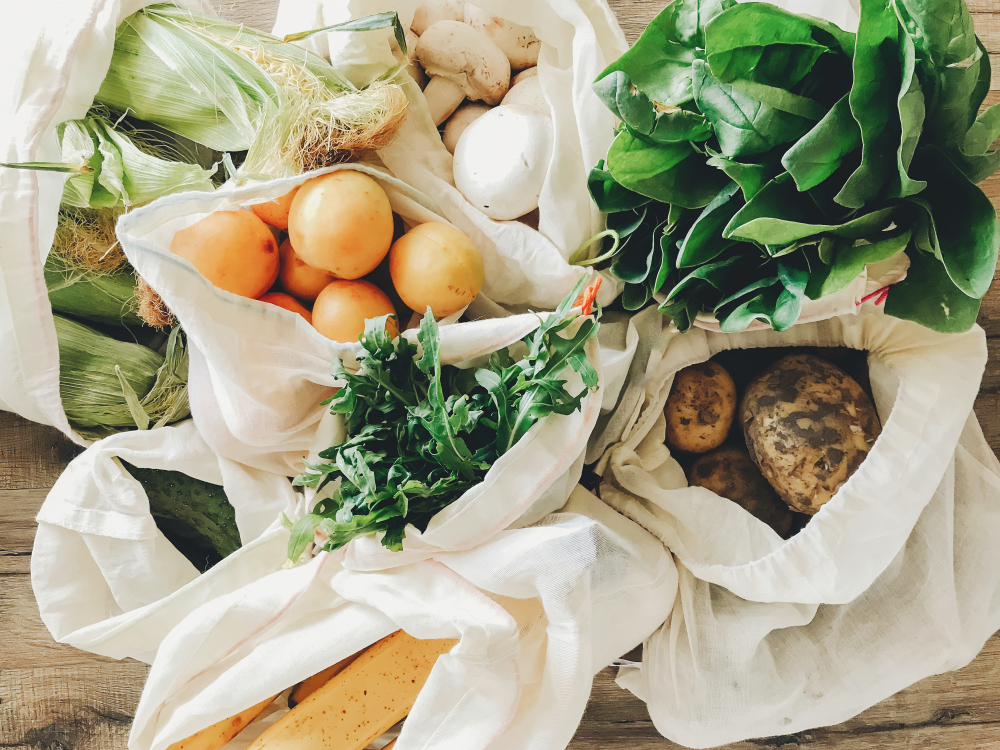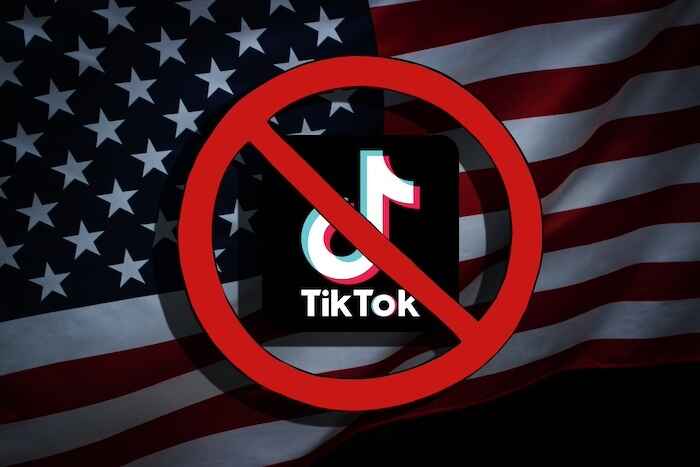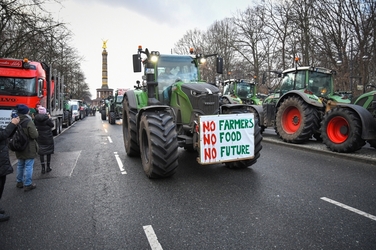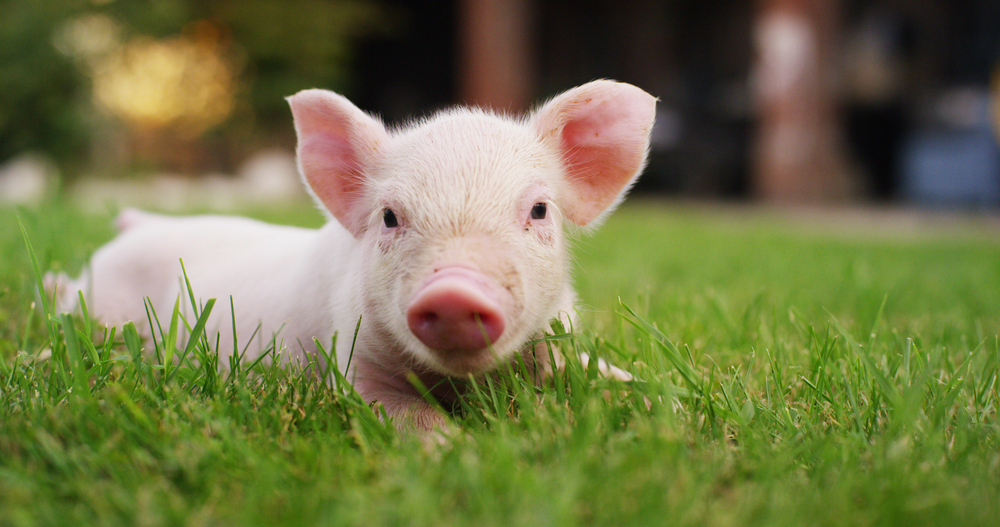Let Free Will Decide… Not the Government
Joel Salatin|July 7, 2020

Many people contact me to pick up their banner… their cause.
I’m glad they do because it keeps me abreast of the varied ideas people have for cultural policy.
Note that I purposely did not say public policy because that sounds political.
When I think of policy, I think of society choosing – voluntarily – to do something different.
For example, right now the number of people gardening is probably the highest it’s been since the 1940s.
Everywhere folks are putting in some veggies, planting a fruit tree and buying berry plants.
No government agency encouraged it. The IRS did not incentivize it. I can’t even think of any public official mentioning it.
But of their own free will, people responded to COVID-19 by deciding to grow food.
That’s the kind of policy I like.
So when someone wrote me asking me to support the idea that “Healthy food should be free to all Americans,” I’m sure he thought I would be in favor.
But the devil is in the details.
A Noble Idea
He didn’t say so in the teaser, but I’m assuming he didn’t mean that anybody, like me, who produces healthy food (as opposed to unhealthy food) should give it away.
I’m sure he meant that some government agency should oversee this as a new public policy.
This has the same argument trappings of free healthcare.
How can you deny anyone healthy food based on inability to pay? Isn’t that like telling a poor person to go eat junk?
These kinds of ideas sound noble and righteous – even charitable – on the surface.
But digging into the details reveals problems. Big problems.
First of all, who is going to determine what is healthy food?
Someone, likely a bureaucrat (or hundreds of them), will draw big paychecks to differentiate healthy from unhealthy food.
But haven’t government agencies been telling Americans what to eat for decades?
Unwise at Best
Dietary officials told us raw milk was deadly; we’d better pasteurize it all.
They even went so far as to deny milk labels unless artificial vitamin D was added as a fortification.
Then these scientific experts told us we should ban butter and lard if we wanted to eat healthy. The healthy choice was hydrogenated vegetable oil.
Meanwhile, the government agency fraternity encouraged farmers to build factory houses… to “plant fencerow to fencerow”… to “get big or get out.”
Subsidies for six crops – corn, wheat, soybean, rice, sugarcane and cotton – resulted in their proliferation in the field and cheapness in the marketplace.
In 1979, these officials invented the “food pyramid.” Remember that? It put Cheerios and Froot Loops on the foundational level while relegating meat to nearly condiment status.
And of course nobody dared whisper a difference between tomatoes grown in compost versus chemical fertilizer or grass-fed beef versus corn-fed, feedlot beef.
According to the USDA, no difference exists.
Today, we have genetically modified organisms (GMOs) as the new darling of these dietary officials. They say that if we’re going to do anything except starve, we’d better eat GMO food. It doesn’t have to be tested because we all know it’s the same as non-GMO. Why muddy the waters? Wade on in… It’s warm.
As we took this short walk down memory lane, I hope anybody with a shred of common sense can see that turning over the definition of healthy food to these agencies is unwise at best and evil at worst.
Who knows what they’ll determine is healthy?
And I purposely haven’t touched on the government-certified organic labeling fiasco.
That’s another story for another day.
What Happens Next
Let’s assume for a moment that said agency did in fact create a list.
The next step is finding the farmers.
Since this is a government-run program, we certainly can’t have a free market involved. Capitalism, after all, is why everything is unequal and unjust.
No, we must establish prices. The agency begins searching for farmers who produce healthy food and who will submit to its pricing structure. How many farmers will sign up for this program?
Finally, we get to the distribution and the final user. Will people sign up for this food because it’s healthy, or because it’s free?
Think about that for a moment. If it’s free, will they treat it with respect? Will they minimize waste? Will they appreciate it?
If you need prodding for the answers, you’re not thinking.
Living in La-La Land
I’m sure the people who crusade for this notion of free healthy food for all mean well. I do not question their motives.
But society is not la-la land. It’s real people making real decisions in real time about real issues.
This same analysis works for healthcare, education, energy, retirement programs (Social Security), housing – just about anything run by the government.
It’s easy to see the fallacies and untrustworthiness of something like this that hasn’t happened.
But tragically this kind of empty-headed thinking has already prevailed in a host of areas in our body politic.
We’re reaping the whirlwind now. A profound difference exists between individuals freely coming to an understanding, one by one, and a government forcing action toward that understanding.
As soon as the power of the state involves itself, and the bureaucracy regulates the noble cause, everything changes.
No, healthy food should not be free. How about ending ALL privileges and subsidies in food and farming so healthy food can compete with government-encouraged junk?
Farmers like me don’t need a handout… We just need the bad side to quit getting handouts.
I would relish going head-to-head in such a climate.
In fact, I’d welcome that climate change.
Are there other areas of public policy that the government should stay out of? Send us your thoughts here.

Joel Salatin
Joel Salatin calls himself a Christian libertarian environmentalist capitalist lunatic farmer. Others who like him call him the most famous farmer in the world, the high priest of the pasture, and the most eclectic thinker from Virginia since Thomas Jefferson. Those who don’t like him call him a bioterrorist, Typhoid Mary, a charlatan, and a starvation advocate. With a room full of debate trophies from high school and college days, 12 published books, and a thriving multigenerational family farm, he draws on a lifetime of food, farming and fantasy to entertain and inspire audiences around the world.





